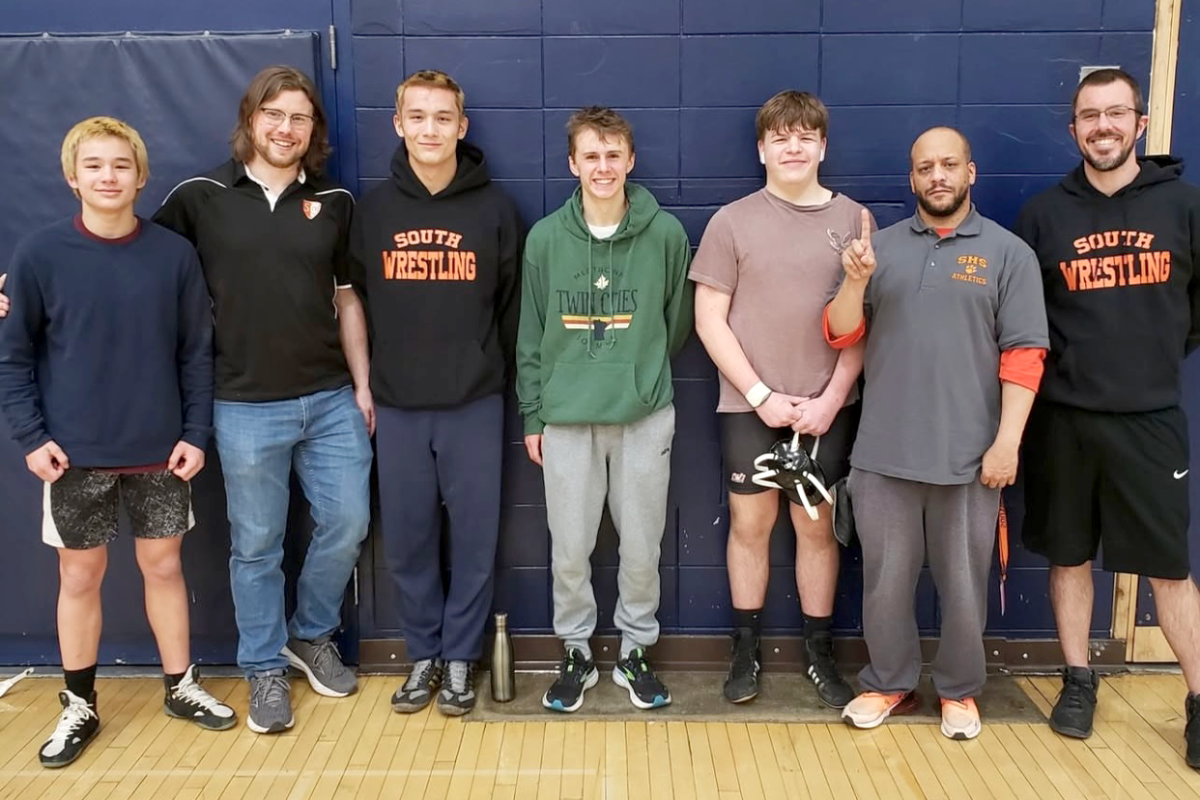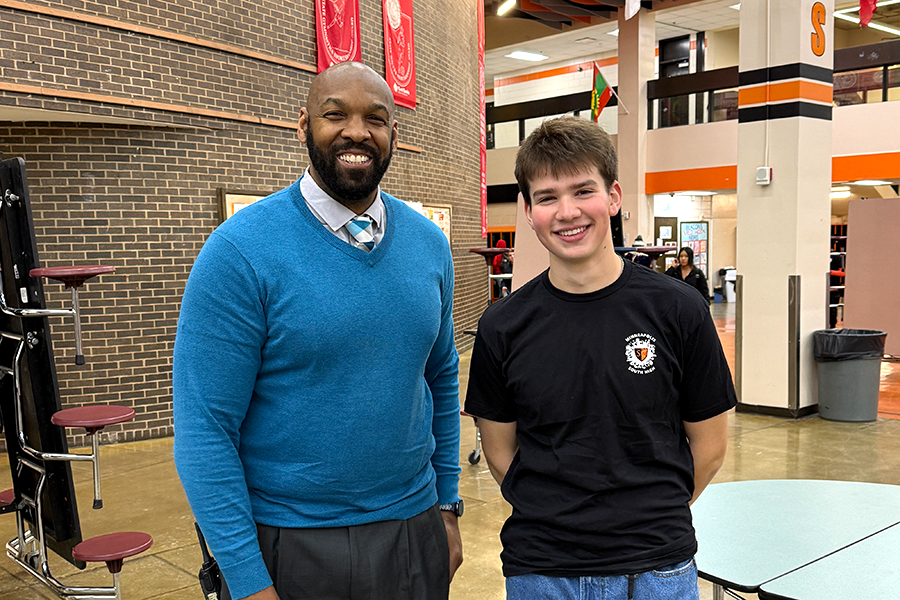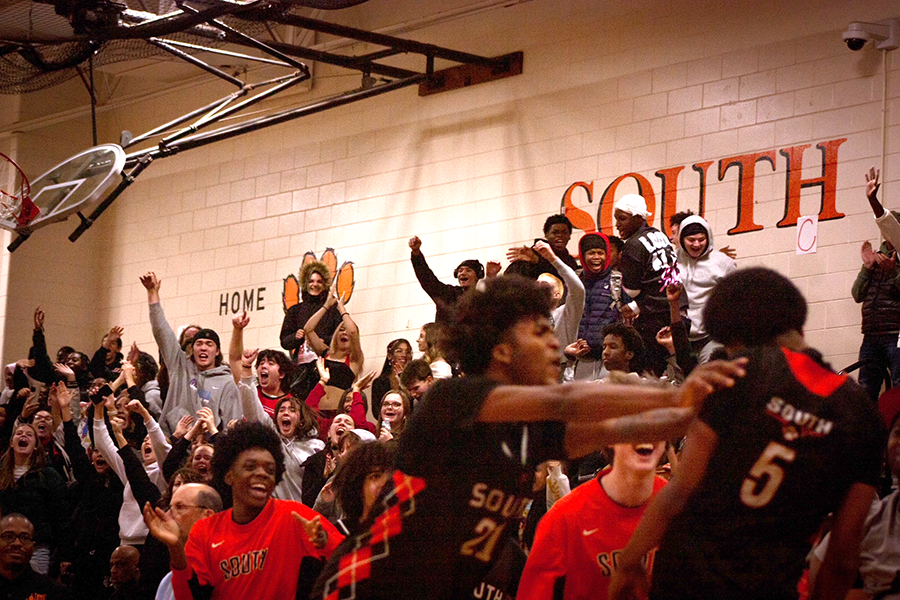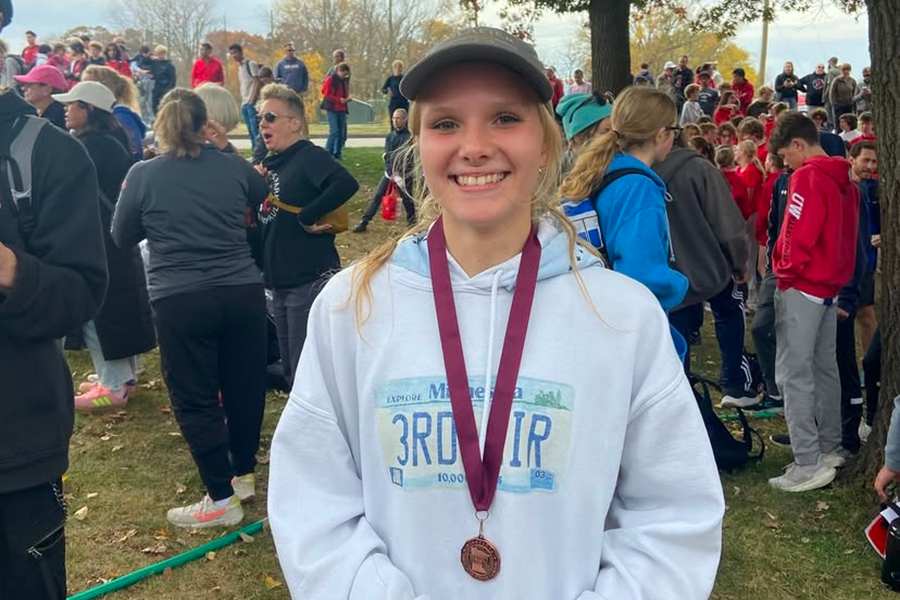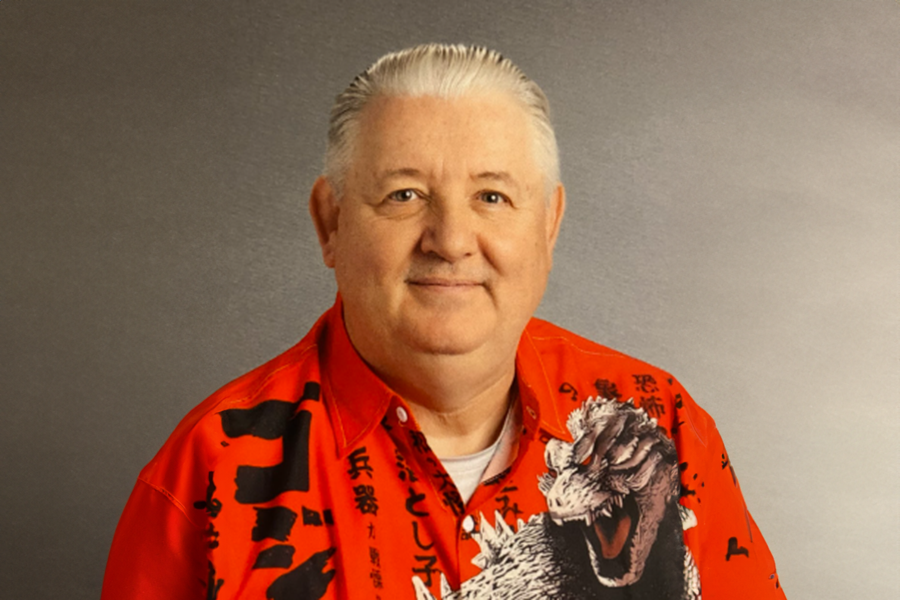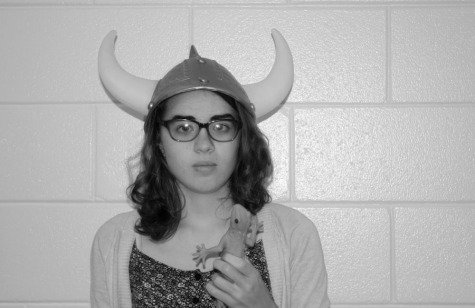“As soon as people found out I was gay, all kinds of hell broke loose,” said Sheridan Moore, a sophomore, about her experiences on a park-board soccer team. “I’ve been pushed down stairs. I was jumped a couple of times.”
It’s no secret that LGBTQ players are often hassled in major league sports. In fact, according to a study in 2006 by the Department of Psychology at Miliken University, men who played sports in high school are more likely to be less tolerant of homosexuality. In addition, there are numerous cases and examples of homophobia by coaches and fellow players.
Moore attributes this hostility to the fact that “in my experiences a lot of [players] think ‘Oh well, they obviously like me’.”
However, this hostility doesn’t seem to be a problem for Moore at South. After coming out to the soccer team at, Moore said, “Everybody was pretty chill with it. People are just more open-minded at South.”
She found that most people on the team figured that “if I didn’t hit on them in the locker room before, I wouldn’t hit on them after.”
Assistant softball coach Carrie Cooley too has seen no hostility or aggression towards lesbian players on her softball team, nor had any of the other seven South softball coaches when asked.
“In my experience, South High is an educational institution where nurturance, free thinking, and open mindedness is fostered. The girls on our softball team have exemplified this. They care about each other and appreciate each others’ differences,” Cooley said.
“Our community is pretty open; everybody is very accepting of all different kinds of people here. So I think we’re really ahead of [other schools] in that respect,” said Mark Sanders, South’s athletic director.
Sanders said that in the time he has been here, he has never had to deal with an act of hostility due to sexual orientation. “We just don’t tolerate it,” Sanders added.
Taylor Erion, a sophomore and player on the softball team said, “Our coaches have definitely talked to us about it before. If you’re comfortable with [coming out], you can… but otherwise you can keep it to yourself. They’re really supportive.”
What is happening at South seems to be a trend in the nation. Late in April, the first player from the mens’ “Big Four,” — that is, major league hockey, basketball, baseball, and football — came out as gay.
In addition, both the NHL (National Hockey League) and the NFL (National Football League) have recently partnered with gay advocacy groups to encourage acceptance among their players.
In addition, although it was commonly reported as true, basketball player Jason Collins was not the first professional athlete to come out.
There are currently four openly lesbian players in the women’s Big Four, including Seimone Augustus from the Minnesota Lynx.
In fact, there is a long history of openly gay players, beginning in 1981 with tennis player Billie Jean King. Granted, the majority of these out players are in lower profile sports, and the majority of them are women.
Men’s sports do receive more air time and more media attention, which may be why Collins was often falsely reported in many sources as the first gay player in the Big Four.
Moore attributed the lack of gay and lesbian players in sports to the fact that “the media likes to pick apart everything about people.”
Junior Anna Meier, a player on South’s varsity softball team added that, “Professional sports are a lot about your image, and if you have the image of being a ‘bad’ person you won’t get on a good team. Coming out to a nation that is not entirely accepting to gay people can be very risky when players have to worry about sponsors and teams wanting to recruit them. People don’t want to stick out in that way.”
“Women’s sports are further along in the movement, but women’s professional athletics do not get much media attention,” said Cooley. “Men’s professional athletics is what makes the money and what is in the media.” she added.
Sports such as hockey, football, basketball and baseball are generally characterized as masculine, for both men and women. Men who don’t appear masculine are generally bullied, whereas women are expected to be masculine, a trait associated with lesbians.
Meier has heard plenty of stereotypes regarding softball. “I feel like softball is widely known as a ‘lesbian sport,’’ she said.
Erion has heard similar sentiments. “I’ve heard that people joined the team just because of [their sexual orientation], but everyone really just comes to play,” she explained.
“Softball is often considered a ‘butch’ sport,” added Meier, who has found that that softball is often considered a sport for lesbians due to its rough nature.
“Males who are gay are seen as more feminine and therefore not as strong and powerful…more like the ‘weaker’ sex. On the contrary, in athletics, it is positive and beneficial when women, gay or straight, are strong and powerful, [which are] traditional male characteristics,” explained Cooley.
Moore has found this in her experiences as a boxer. “Being a woman, if I were to pursue boxing [as a career], people would just assume that I’m gay,” she explained. “I get [called a] dyke a lot because I play so many sports.”
Women are not the only ones who experience stereotypes in sports. Senior Brandon Strong, a wrestler at South, said that he hears a lot of talk about wrestling being gay.
“[People say] that position is gay, wrestling is gay, a lot of that.” Strong has observed a lot of stereotyping that wrestlers are gay, due to the tight fitting clothing they wear during competition, or the fact that they are so close to other male players while wrestling.
“A lot of people stereotype wrestling because they don’t necessarily understand what exactly it is,” Strong concluded.
South athletic staff is proud of South’s attitude towards GLBTQ althletes. “I think we’re way ahead of the curve,” said Sanders. Cooley added, “South is home to people with open minds and heart.”


